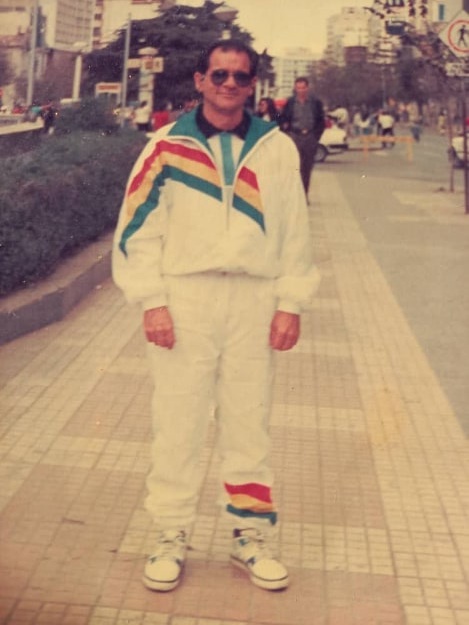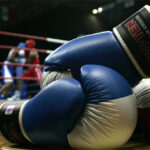Mayabeque, Cuba: During the last 25 years of the last century, Cuban table tennis lived its period of maximum splendor, having a large group of athletes of both sexes from several provinces, who were consecrated for their relevant results in national lids and later they also rose to the international level, especially in the Latin American area.
Among the table tennis players who shone at that time were several natives of municipalities in the then province of Havana, who transcended the history of that sport for their numerous successes in top-level matches.
Serious work began in Güines in 1975 to develop this specialty, which soon began to bear fruit and soon a quarry was fostered from which athletes emerged who gave prestige to the territory and the province.
The architect of that incipient work was Professor Jorge Luis Quintero de Armas, “Yiyo”, as all know him. He was born in this village of Mayabeque on February 3, 1948.
His link with the table tennis began in the early 60s in the “Bella Union”, an ancient society for black people. There he used to attend to play at the only table that existed. He never imagined that a decade later, that same facility would be the scene of the main successes of him as a specialist in the sport that he always was attracted to.
As a player, ?Yiyo? participated in two national championships, both in Havana; in the 2nd. Category celebrated in 1962 he obtained a gold medal in the men’s double modality with Armando Allende from the capital. The following year he already competed in the first category without pain or glory.
The “Comandante Manuel Fajardo” Higher School of Physical Education (EPEF) was the first teaching center created by the Revolution to train teachers of this specialty, its first course was inaugurated in 1964 and “Yiyo” integrated the initial enrollment until three years then he graduated.
When the Camilo Torres elementary school was inaugurated in the community of El Cangre, with the presence of Commander Fidel Castro Ruz, at the proposal of the Provincial Directorate of Education, he joined the first cloister as a physical education teacher and shortly after he served as deputy director of the specialty in the recently created Region of San Nicolás, of fleeting existence.
In 1971 he went to work at the Inder in Güines as a table tennis coach. As there was no steady premise, he fixed this sport, he wandered around the Sports Coliseum and the Héroes de Bolivia school; from that first group, Raúl Betancourt, Lázaro Peña, Marta Rosa Báez and Jorge Luis Lozada stood out. The first two represented Cuba in the Latin American Children’s Tournament in Mexico.
La Bella Unión was handed over to Inder in 1974 and christened CVD Carlos Baliño, it became the headquarters of table tennis. Along with “Yiyo” also worked qualified coaches like Virgilio Torres and Sigfredo Barrios.
He continued to train other talented players of both sexes who turned the demarcation into a school, youth and first-rate powerhouse. The aforementioned quartet was joined, among others, by Ernesto González, Madeleine Armas and cousins ??Rubén and Francisco Arado.
They, in addition to Betancourt and Marta Rosa, formed a sextet that interchangeably for years, integrated all the Cuban teams that attended and won medals in the highest level competitions of the time. At different times, they were all individual national champions and of different modalities.
For years the luxury national team consisted mainly of athletes promoted by ?Yiyo?; so relevant were their competitive results that the six made merits to deserve the status of Glories of Cuban Sports and five obtained it.
In addition to developing high-class athletes who gave prestige to the territory and the nation, he was a true educator, habit-maker, demanding in the fulfillment of the discipline. Four of his lofty students after leaving active sport followed in his footsteps as top-level coaches.
In 1986 he graduated with a Bachelor of Physical Culture and Sports. He occasionally collaborated with the national technical group and in 1991 he traveled with them to the Democratic People’s Republic of Korea where he spent three months watching over the training of our athletes, including Betancourt, Madeleine and Rubén Arado. That experience allowed her to expand his technical knowledge.
He brought his vast knowledge to bear for almost two years as coach of the Bolivian national teams, and led that nation to win individual silver and bronze medals, the country’s first in international championships.
In 1994 he traveled to Nicaragua as a coach for the National Team and in 2003 in a new technical collaboration he spent two years in Venezuela, where he achieved excellent work in the municipality of Pedraza in the state of Barinas, a town that led from zero to becoming a state power of the table tennis.
After 38 years of total dedication to table tennis “Yiyo” decided to take retirement in 2010. But eight years later he returned to the sport of his loves, hired to restart teaching in the same facility where he started as an athlete and later as a coach.
Unfortunately, Covid-19 has broken its dreams of greening laurels and continuing to discover talents in children in day care centers. He evokes the times when this sport lived through a golden age and contributed to the then Havana province being consecrated as the best in our country.
He lives proud of being the architect of the development and massiveness that in past times brought so many joys to his municipality and province, especially by several athletes considered among the best in Cuba of all time. He enjoys the respect and affection of those who know him.
Jorge Luis Quintero, ?Yiyo?, was several times recognized as Best Coach of the former province of Havana and that same award he received in Barinas. He also won the Martyrs of Barbados and Rafael María de Mendive distinctions.




